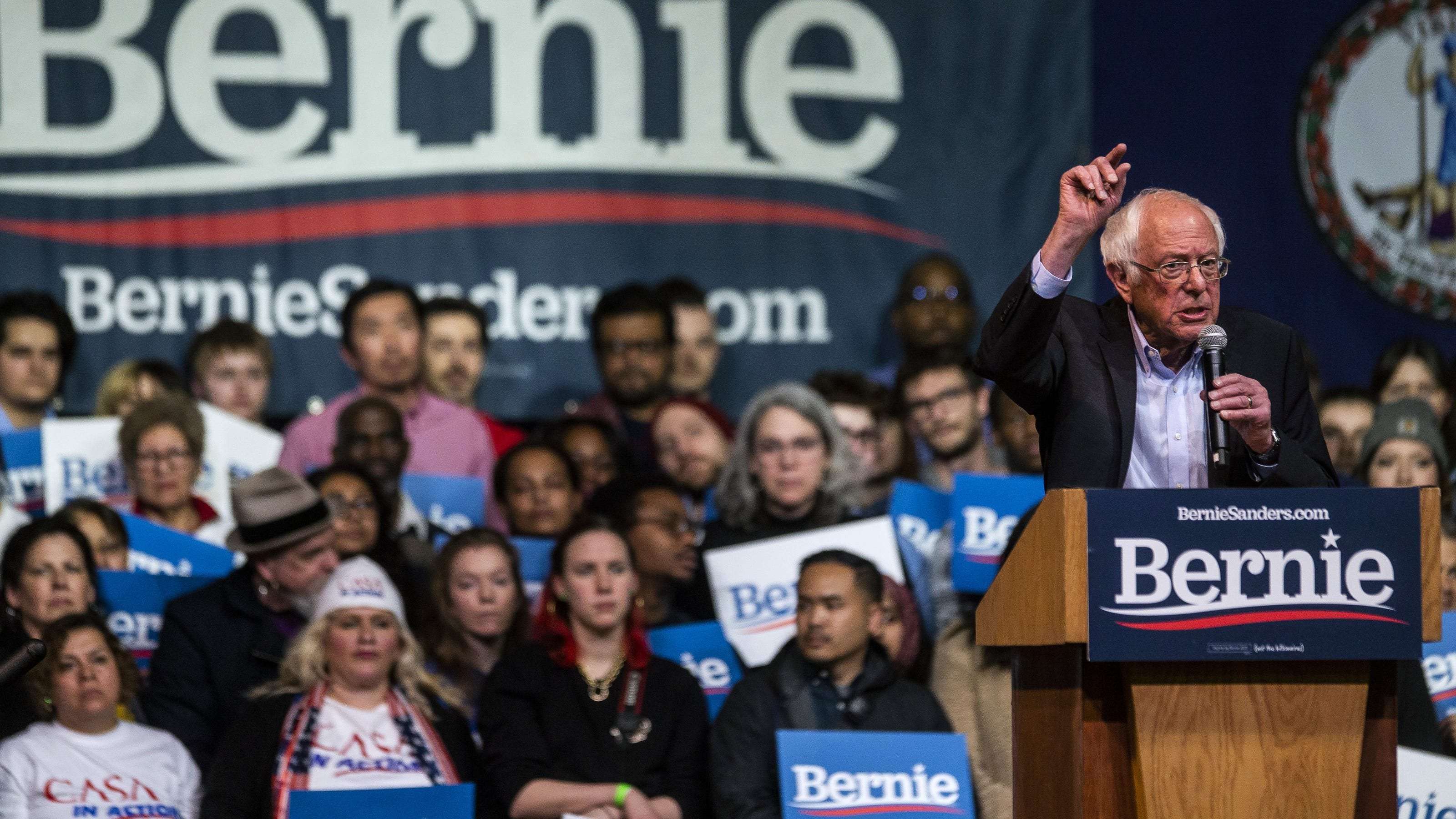Many young voters sat out Super Tuesday, contributing to Bernie Sanders' losses
WASHINGTON – Young voters cheer Bernie Sanders' anti-establishment message. They turn out in throngs at his rallies. And they form the core of his grassroots efforts to win the Democratic presidential nomination.
But their fiery passion did not translate into the robust turnout he needed on Super Tuesday to win a number of key states, notably in the South where a strong showing by former Vice President Joe Biden has made the nomination contest a two-man race.
Exit polls for five southern states that Biden won – Alabama, North Carolina, South Carolina, Tennessee and Virginia – found that young voters did not show up at the polls in the numbers they did in 2016.
2020 updates, once a day: Get them distilled, explained and delivered straight to your inbox
In addition, the Vermont senator has been grabbing a smaller share of them in most cases.
In Alabama, only 7% of the voters were in the 17-29 range compared to 14% in 2016. Sanders won six of every 10 of those voters Tuesday compared to four of 10 in 2016.
In North Carolina, 13% of Tuesday’s electorate were young voters, compared to 16% four years ago. Of those, 57% went for Sanders in 2020 compared to 69% in 2016.
In South Carolina, young voters made up 11% of the electorate Tuesday compared to 15% in 2016. Sanders won 43% of those voters Tuesday compared to 54% four years ago.
Whistling Dixie: Joe Biden sweeps the south on Super Tuesday, building on South Carolina win
In Tennessee, 11% of those voters showed up Tuesday versus 15% in 2016. Sanders did better among that group Tuesday winning 65% compared to 61% four years ago.
In Virginia, young voters comprised 13% of Tuesday’s vote compared to 16% in 2016. Sanders won 57% of those voters Tuesday compared to 69% four years ago.
Even Sanders’ home state of Vermont showed a lackluster turnout of young millennials and 'Gen Zers.' Only 10% of the state’s electorate were under 30 compared to 15% when he ran against Clinton, according to exit polls.
And a similar trend was playing out in Texas where 16% of voters were between 17 and 29 compared to 20% in 2016.
The common theme in all six states: Sanders fared worse this year than he did when he faced eventual nominee Hillary Clinton four years ago.
Swing voters: 'He's a socialist and I'm not': Will moderates warm up to Bernie Sanders as Super Tuesday approaches?
Sanders’ agenda, which includes erasing college debt and providing health care for all, is popular with young people. But the exit polls indicated those voters were not the line of defense they were in 2016.
Sanders’ rallies feature throngs of college students and 20-somethings cheering him on. In Virginia, Sanders held three rallies last week that featured thousands of energized supporters at each stop. On Tuesday, Biden clobbered Sanders in Virginia by winning by 30 percentage points.
Sanders sounded undeterred Tuesday as he promised to keep marching toward the nomination.
"We are going to defeat Trump because we are putting together an unprecedented grass-roots multi-generational, multi-racial movement," he told supporters at a rally in Vermont.
The lackluster showing is sure to fire up the long-standing assessments of election experts who say young voters’ energy rarely matches their turnout on Election Day. It also undercuts Sanders’ argument that he is best suited to defeat President Donald Trump in November.
Sanders would need an extraordinary turnout among young voters to make up for the loss of moderates who would stay away from the polls if he’s the nominee, according to a study by political scientists David Broockman of the University of California-Berkeley and Joshua Kalla of Yale University, who surveyed some 40,000 voters to assess the electability of the Democratic contenders.
Sanders would need an increase of 11 percentage points among voters between 18 and 29 to offset the loss of swing voters, the study concluded.
But Griffin Schutte, 21, of Virginia Beach, said he switched from Clinton in 2016 to Sanders this year because he thinks the Vermont senator is best to stand up to Trump.
"And I think Bernie Sanders is well equipped to stand by his ideals and his policies that he’s been standing by during his long and very consistent career in politics," Schutte said as he stood in line for a Sanders rally in Richmond Thursday.

PanicOffice on March 4th, 2020 at 06:20 UTC »
Remember kids. "Ok Boomer" is only funny if you actually go vote afterwards.
lachesis44 on March 4th, 2020 at 05:42 UTC »
This is the most frustrating part. We have been the most vocal about wanting Bernie as our representative and we still didn't fucking show up. It's infuriating
CarmenFandango on March 4th, 2020 at 05:42 UTC »
Getting young people to the polls is still a challenge.